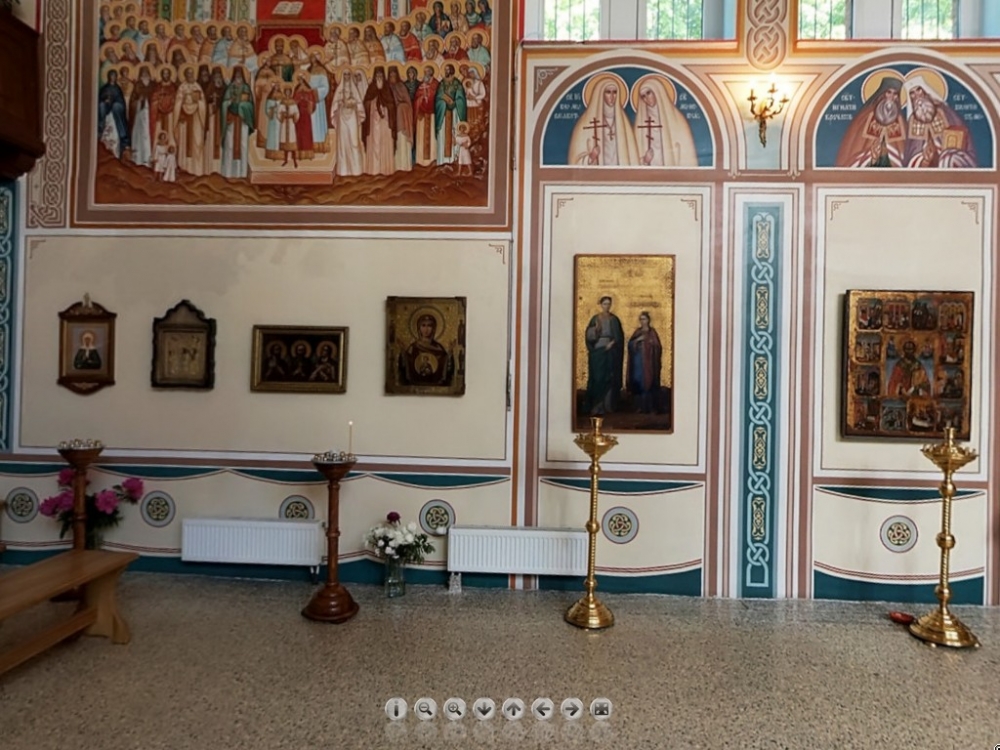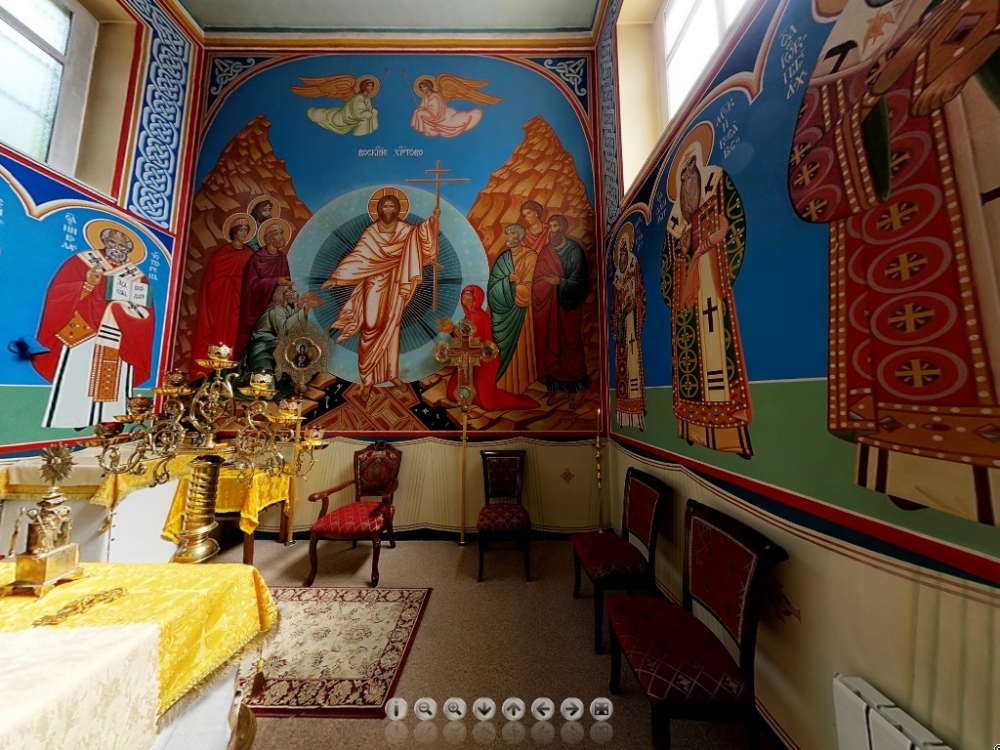A few words about…
The Church of All Russian Saints is one of three Orthodox houses of worship in Klaipeda.
As achurch building it has a recognizable gothic style among the other Orthodox church architectures. It was converted from the Lutheran Chapel (built in 1910) into an Orthodox Church in 1947. The roof of our Church is topped by a relatively small bell — tower attached to the western part of the church inside the onion-shaped dome, where cross is mounted.
The Church building is divided into three main parts: the narthex (vestibule), the nave (the temple proper) and the sanctuary (also called the altar or holy place).
The narthex is the connection between the Church and the outside world and for this reasoncatechumens and non — Orthodox are to stand here.
Separating the narthex from the nave are the Royal Doors.
On the left hand side from the entrance door of the portal there is an open.
Church-shop, where any churchgoers can buy candles, icons , prayer-books, books about church and church fiction books , to leave personal memo- notes, asking to pray in memory of those who died or giving health to the next of the kin or friends.
The nave is the main body of the church where the people stand during the services.
The Nave of our Orthodox Church presents the most common layout inside Orthodox Churches since Justinian, an open rectangular layout, as better suited the services celebrated in them…
There are no side-aisles in the church and the space is of rectangular shape and is opening completely.
In the central part of the nave there is the Lectern with the every day icon on it. On either side of lectern and along the nave walls are large brass candlestands (called menalia) . The churchgoers usually light candles there… Above the Lectern in our church it is the circular chandelier hanging below.
The walls are covered from floor to ceiling with icons or wall paintings of saints, their lives, and stories from the Bible

Above the nave in the dome of the church is the icon ofC hrist the Almighty («Ruler of All”).
There are some seats or pews in the back side of nave. Traditionally there is no sitting during services with the only exceptions being during the reading of the Psalms, and the priest’s sermon. But usually the people stand beforeGod Iconostasis is the main article of our Church ( made in 1913 for Liepaja Cathedral in Latvia, transported to Klaipeda in 1947, and restored in 2011). The iconostasis is a wall between the nave and the sanctuary, which is covered with icons. There are three doors, one in the middle and one on either side. The central one is traditionally called the Beautiful Gate and is only used by the clergy. There are times when this gate is closed during the service. The doors on either side are called the Deacons’ Doors or Angel Doors. These doors are used by deacons and servers to enter the sanctuary. To the right of the Beautiful Gate (as viewed from the nave) is the icon of Christ.There are many other icons on the iconostasis. The curtain is drawn and opened at various points in the service.
The icon of All Russian Saints to whom the church is dedicated is on the left of Icon Stand.Above and behind the iconostasis, the icon of Virgin Mary with Christblessing all. Oil lamps usuallyburn before all the icons.
Sanctuary The altar (sanctuary) is situated in the eastern part of the church. The area behind the iconostasis reached through the Beautiful Gates or Angel Doors is the sanctuary or altar. Within this area is the altar table, ( the holy table or throne). On altar Liturgy may only be performed once a day.
Gallery Above the Vestibule there is the Gallery where during the church ceremony are the singers ofChurch choir.

The choir singers of our Orthodox Church usually sing every day as well as on Saturday and Sunday afternoon of the festival. The choir is the part of the presentation in the church that provides a brief statement on the teachings, history and traditions of the Orthodox Church. The choir usually sing selected hymns, psalms from our normal Sunday worship service, theDivine Liturgy, as well as other hymns related to major feast days of the Church. Most of hymns are sung in old Russian. Other hymns are sung using modern translation from the original.
/panorama/Алтарь_Храма.swf
/panorama/Главный_вид_Храма.swf
/panorama/Панорама_храма_внутри.swf
/panorama/Престольная_икона_Храма.swf
/panorama/Притвор,книжная_лавка.swf
(650) просмотров
